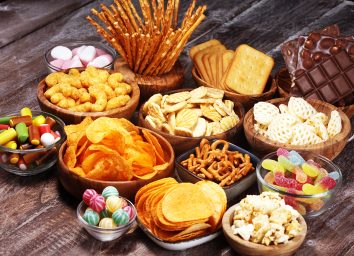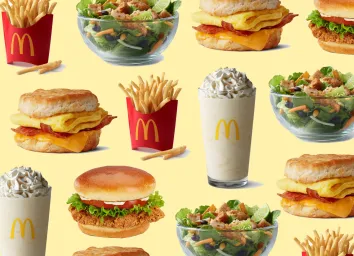15 Warning Signs Your Diet Is Making You Gain Weight, Say Experts
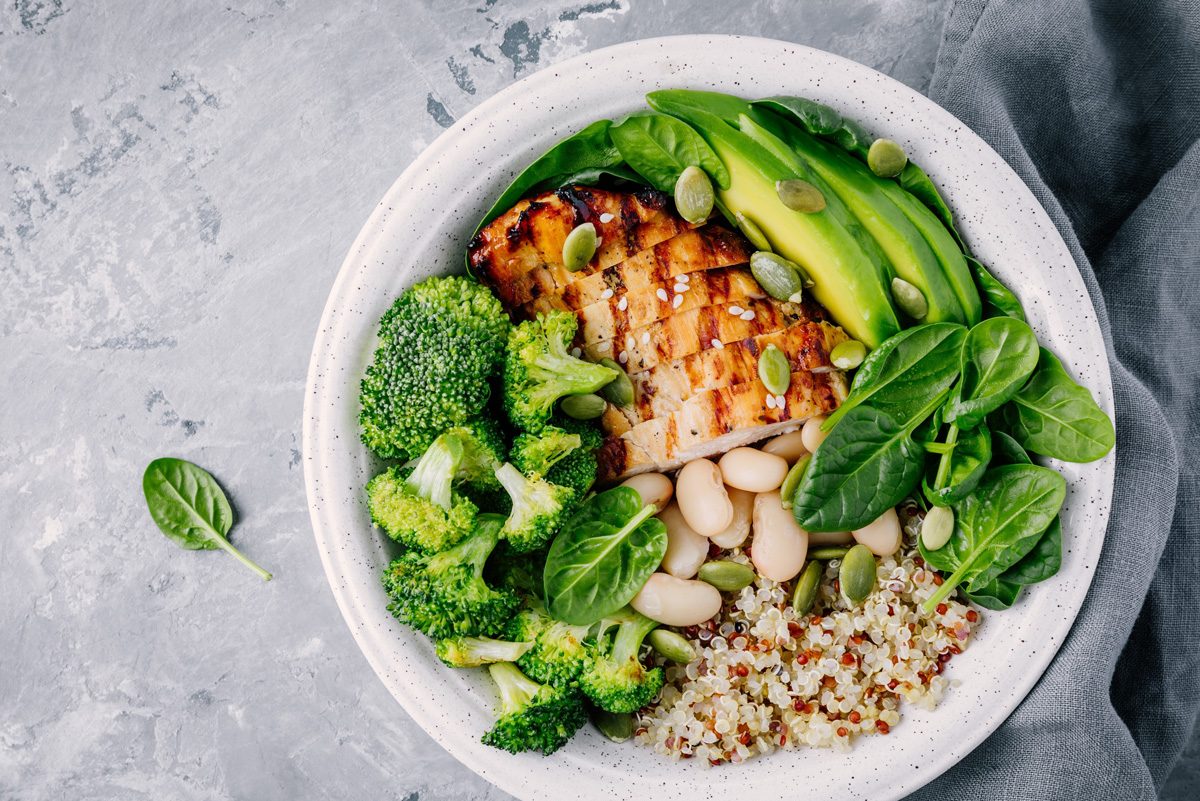
There’s nothing more frustrating than gaining weight when you’re attempting to lose it. But before you beat yourself up, there are a few things you may want to investigate as a possible cause.
“If you’re feeling like your clothes are a bit tighter, it may not be entirely due to excessive calorie intake,” says Jen Bruning, MS, RDN, LDN, registered dietitian nutritionist and Spokesperson for the Academy of Nutrition and Dietetics. “Even if you are gaining weight, the reasons may be more complex than you think.”
There may be many factors that play into why you might be gaining weight on your diet.
“While it’s true that weight gain is a result of taking in more calories than a person is burning, the rate at which a person burns calories can be impacted by many things,” says Bruning. “Genetics, health history, current medications, activity amount and type, and macronutrient balance can impact the way our bodies both use and store energy.”
If you’re experiencing weight gain, you should know that you’re not alone. “Keep in mind that it’s not uncommon for your weight to fluctuate,” says Kelli McGrane, MS, RD, registered dietitian and Lose It! nutrition consultant. “From exercise to hormonal changes, there are many reasons why the scale may go up or down a few pounds. Rather than focusing on weight changes day to day, keep a log of your weight to see if it’s consistently trending up.”
See if you’re experiencing any of these 15 warning signs your diet may be making you gain weight so you can nip them in the bud and get back on track. Afterward, be sure to try out these 15 Underrated Weight Loss Tips That Actually Work.
You’re eating beyond satisfaction and eating to the point of feeling uncomfortably full.
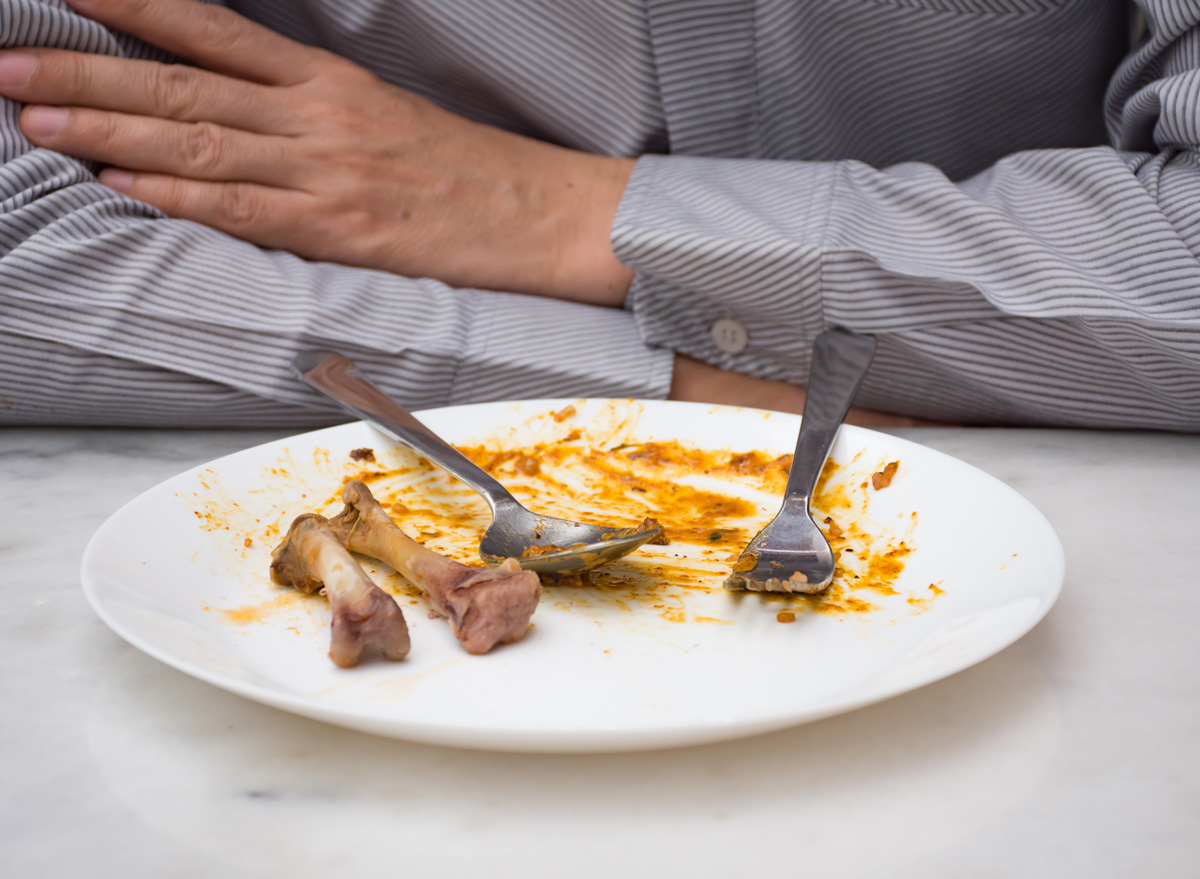
“Overeating can cause weight gain so the amount of food eaten contributes to weight gain more than the type of food eaten,” says Brooke Glazer, RDN, registered dietitian nutritionist and nutrition consultant for RSP Nutrition. “Be mindful of portion sizes and how your body feels while eating. Aim to stop eating when you feel satisfied and comfortably full, rather than eating beyond that point. Remind yourself that food isn’t going anywhere and that you have unconditional permission to eat, so there’s no need to overeat now because you can have more tomorrow.” For more on this, check out these 17 Reasons You’re Overeating (And How to Stop!)
You’re letting too many hours go between eating.

“Waiting too many hours between meals can cause you to get too hungry and when you enter a meal starving you’re more likely to eat until you’re stuffed,” says Glazer. “Undereating leads to overeating and overeating can lead to weight gain.”
STAY INFORMED: Sign up for our newsletter to get the latest food news delivered straight to your inbox.
You don’t pay attention to portions, even with healthy foods.
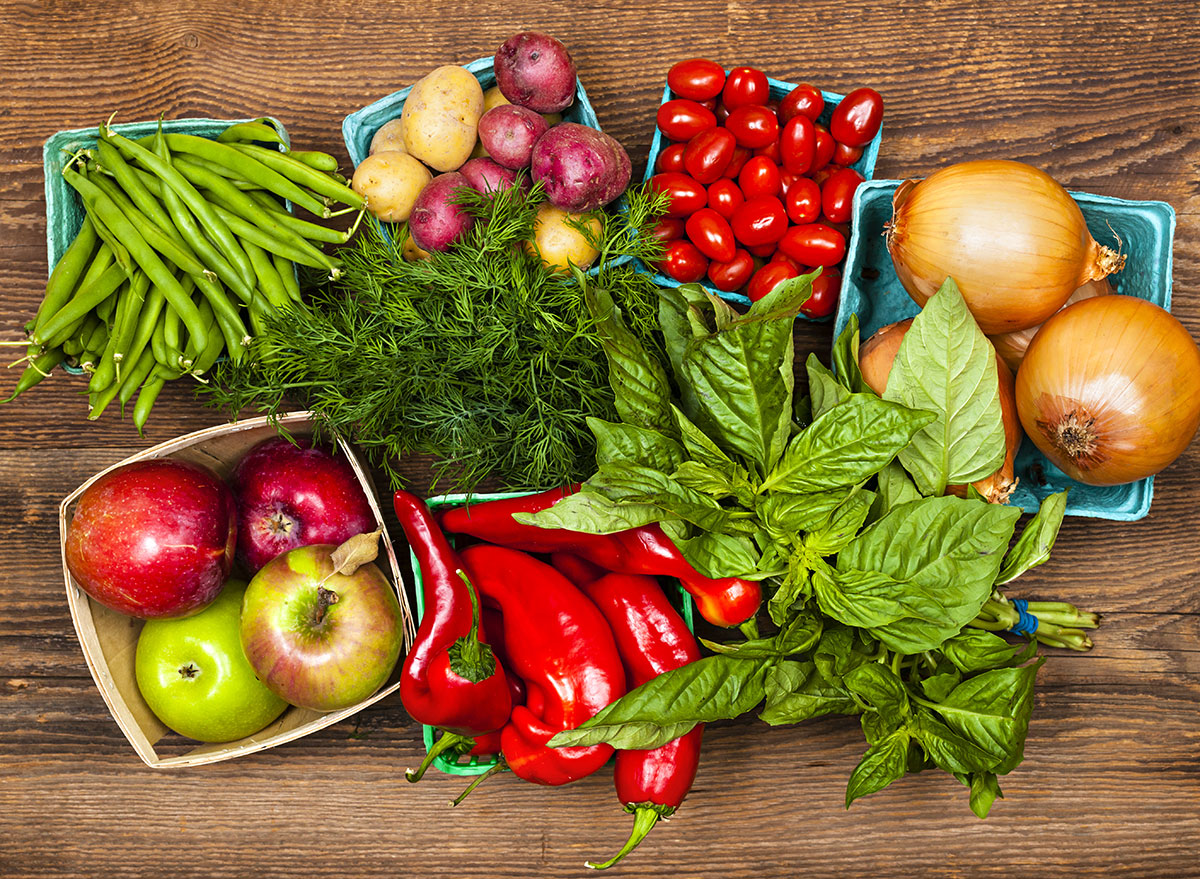
“People who are trying to lose weight may be making better food choices, like avocados, olive oil, and nuts, but eating too much of those foods won’t help if the quantities are too large,” says Keri Gans, MS, RDN, CDN, author of The Small Change Diet. That’s why you need to be wary of the 30 Healthy Foods You Better Eat in Moderation.
You’re retaining water.

“Your weight gain may be related to water retention. While we technically could gain weight every day, a noticeable jump from one day to the next is unlikely to be from extra calories,” says Bruning. “Symptoms like bloating can be caused by water retention or gas.” Need some help identifying your bloating problems? Check out the 10 Reasons You’re Constantly Bloated, According to a Dietitian.
You’re really stressed.

“Chronic stress and weight gain are an issue in our society- especially during this crazy time in our world,” says Debbie Potts, Functional Nutritional Therapy Practitioner (NTP) and health consultant for Sunlighten. “External chronic stressors and hidden internal stressors impact the whole you from the inside out. You may be eating real nutritious food, but you may still experience a domino effect of internal breakdown and burnout of body systems.” If you think stress is causing your weight gain, take a look at the 10 Ways to Relax So Healthy Eating Works.
You have food sensitivities.
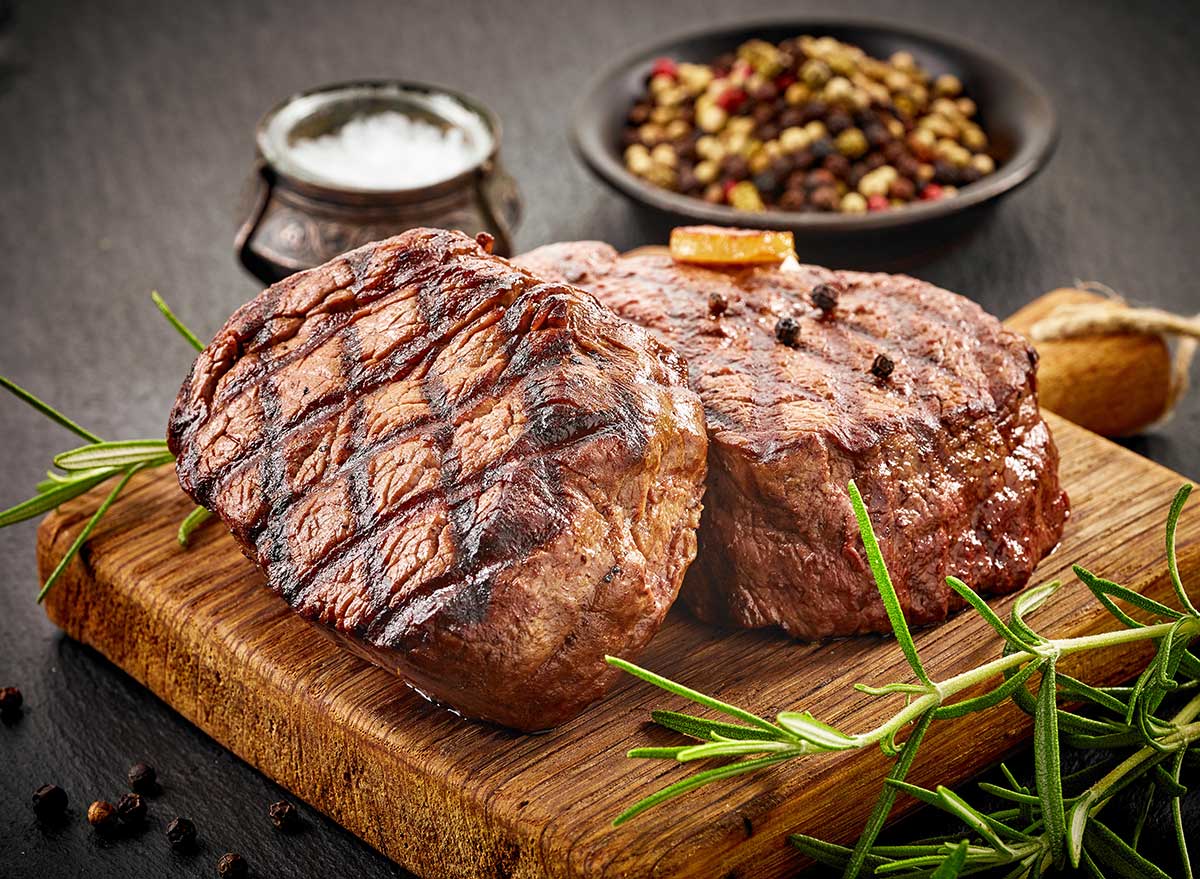
“If you are eating the wrong foods for your body, it can lead to irritation and inflammation of the gut, including leaky gut, which may cause you to gain weight” says Potts. And by “wrong foods” we’re not just talking about the ultra-processed junk. “The ‘wrong foods’ for you could even be healthy, nutrient-dense foods as broccoli and grass-fed beef. You don’t know unless you test, investigate, and correlate the results to create an individualized program to help you burn fat and be healthy on the inside out.” If this sounds like it may apply to you, read more about these 15 Signs You Have a Food Intolerance, According to Dietitians.
Your snacks are too big.
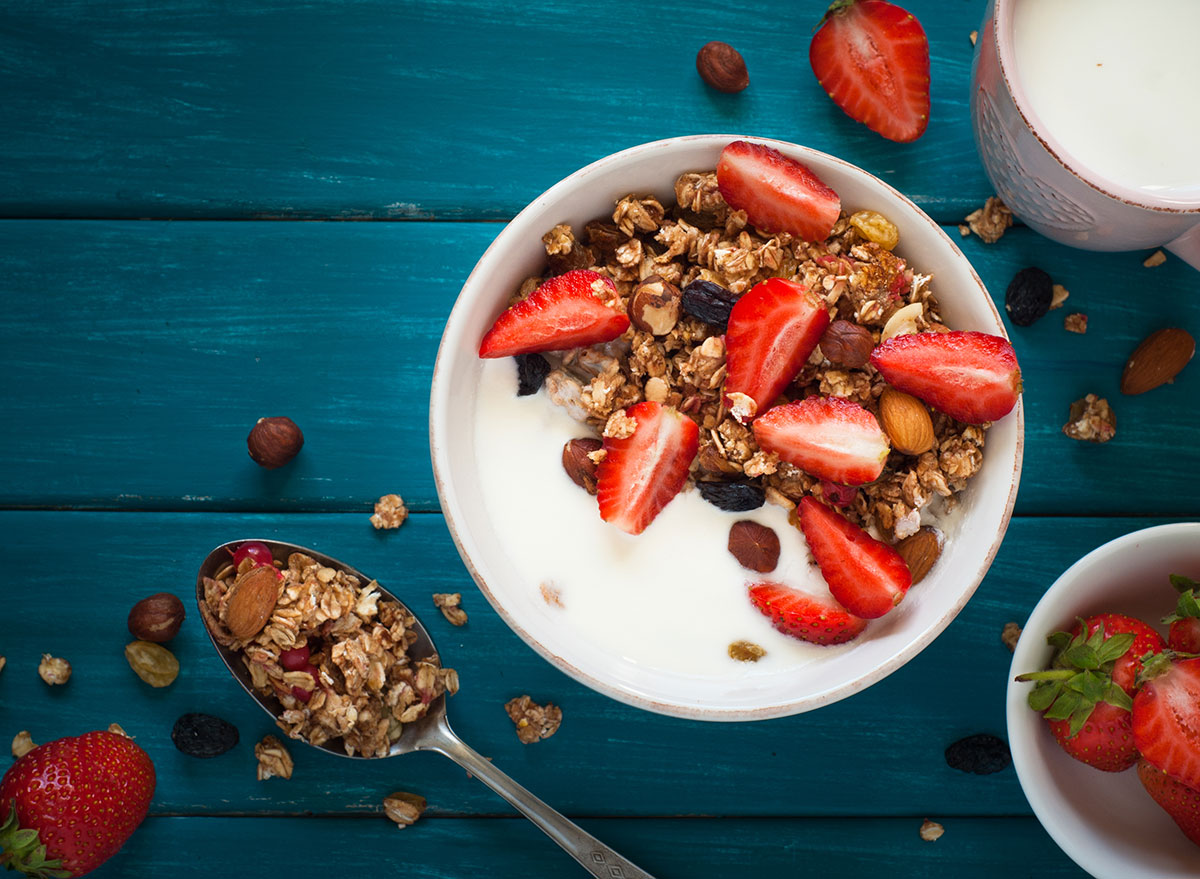
“Many people snack and eat every 3-4 hours, but the snacks can become more like meals,” says Gans. “Not keeping track of your snack calories can quickly add up. I suggest that snacks shouldn’t be more than 200 calories.”
You’re always hungry.

“A balanced diet that incorporates fiber-rich carbs, lean protein, and healthy fats keeps most people satisfied for at least 3-4 hours during the day. If you feel hungry every hour or 2, take a look at the foods you’re eating,” says Bruning. “Foods high in simple sugars and lacking fiber and other nutrients can cause an increase, and then rapid decrease, in blood sugar, signaling your brain that you need more energy. This, in turn, may lead you to eat more often, and more in total, than you would if your meals were more balanced.”
You’re drinking caloric beverages throughout the day.

“If your weight is trending up, yet you don’t feel like you’ve been eating more, chances are beverages are to blame,” says McGrane. “From fancy coffee shop beverages to energy drinks, beverages can easily provide a meals-worth of calories, yet be less filling than an actual meal or snack.”
You’re eating too much salt.
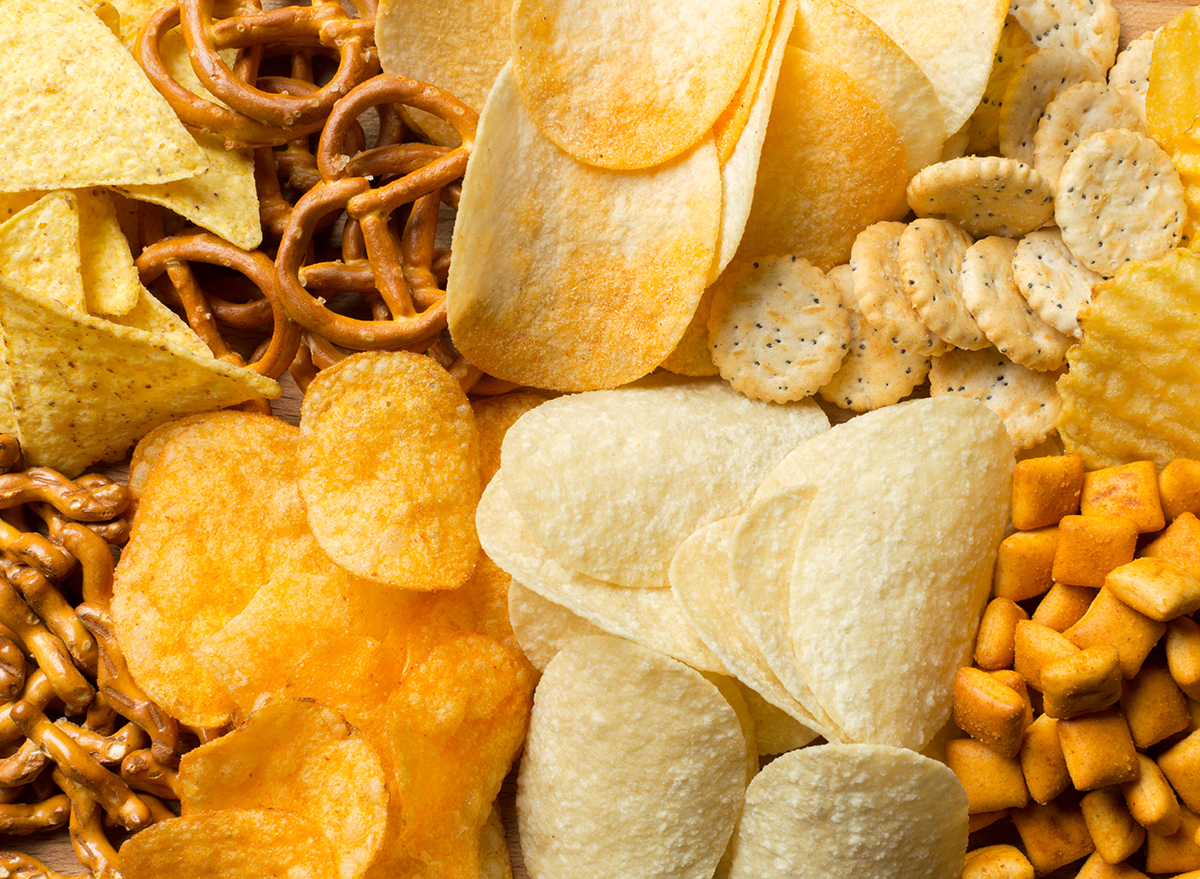
“Many people experience a feeling/appearance of ‘puffiness’ after an especially salty meal,” says Bruning. “This bloated feeling can give you the impression of weight gain, but in healthy people, this will dissipate as you reduce your salt intake.”
You haven’t changed the amount of alcohol you’re consuming.

“If you’re on a new diet but your alcohol consumption has remained the same (or even increased in summer months), you may not be losing weight,” says Gans.
Your blood sugar is all over the place.

“If you often experience signs and symptoms of being ‘hangry‘—shaky, nauseous, thirsty, sleepy in the afternoon, and fatigue that is relieved by eating—you may have blood sugar issues,” says Potts. “You may be stuck on the non-stop blood sugar roller coaster. This is when you’re burning sugar or ‘kindling’ for fuel instead of fat or ‘slow-burning logs.’ You can resolve this problem by taking a metabolic efficiency test to find your ideal with macronutrient ratio.”
You’ve eliminated all the foods you love.
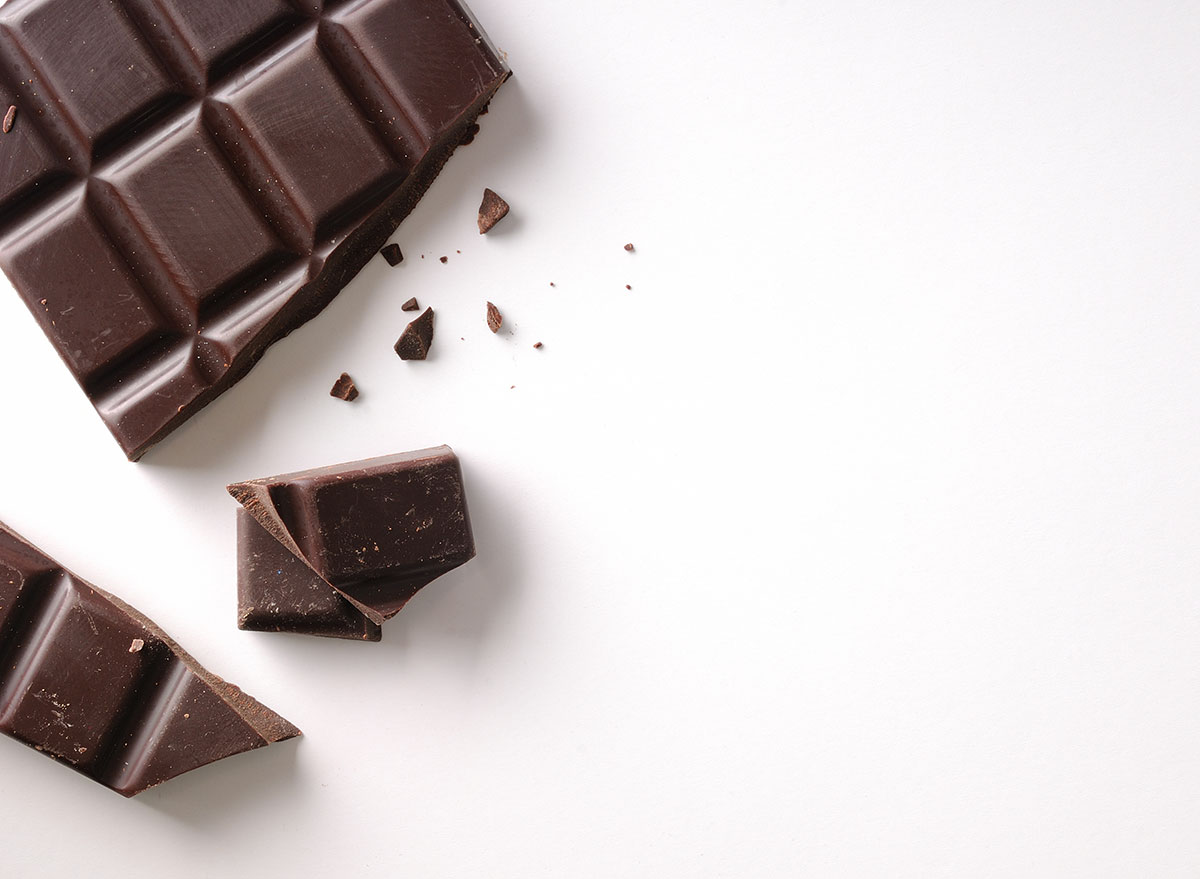
“If your cravings haven’t been catered to, one square of chocolate after lunch can now turn into having a whole chocolate bar,” says Gans. “If you eliminate all foods you secretly love when you do ‘give into them’, you’re more likely to binge.”
Your meals are big and less frequent.

“Most everyone occasionally eats more than is comfortable. But if this is a regular feeling, you may be eating more than your body can healthfully process in one sitting,” says Bruning. “This could lead to weight gain. But even if it doesn’t, keep in mind that regular big meals could lead to heartburn/reflux, higher average blood sugars over time, or even mess with your sleep quality.”
You eat too rigidly during the week.
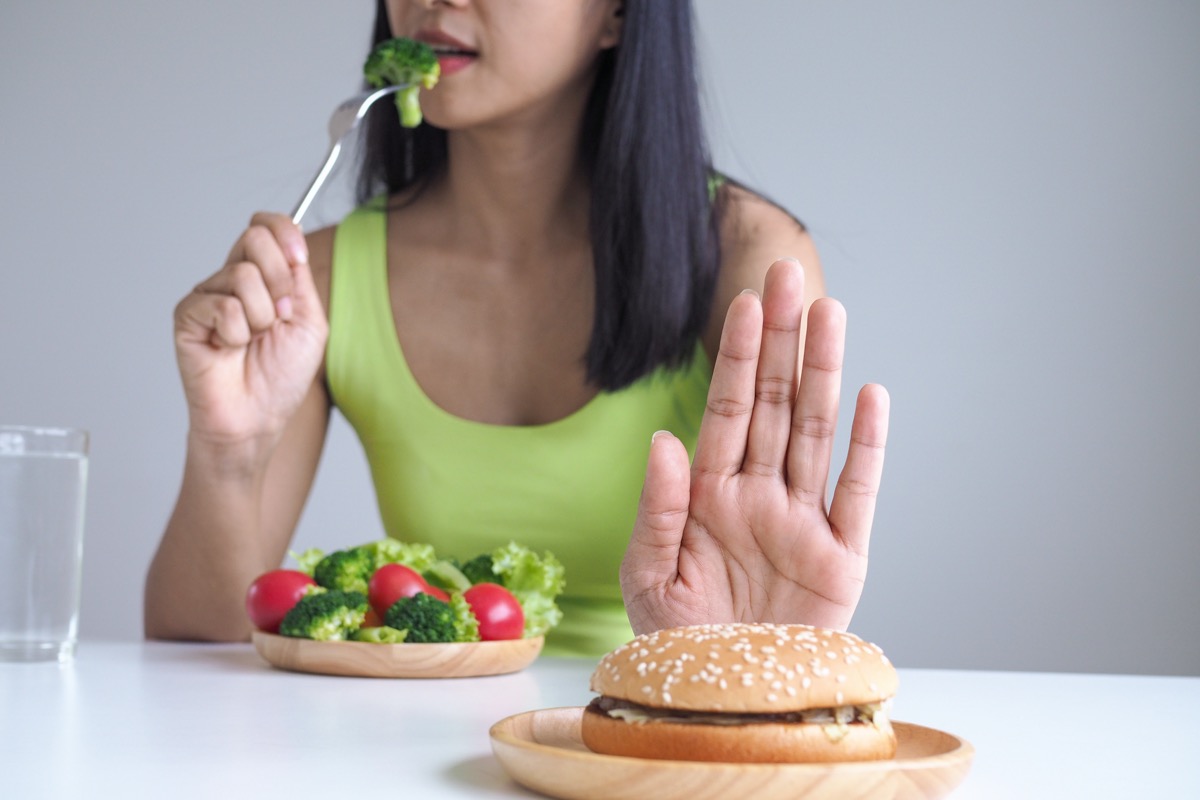
“During the week, you may be very strict Monday through Thursday, and then switch to a mentality Friday through Sunday where the floodgates open, which leads to overeating,” says Gans. “This may be sabotaging your weight loss goals.” Especially if you end up opting for one of The Cheat Meals That Are Never Worth it, According to an Expert.

